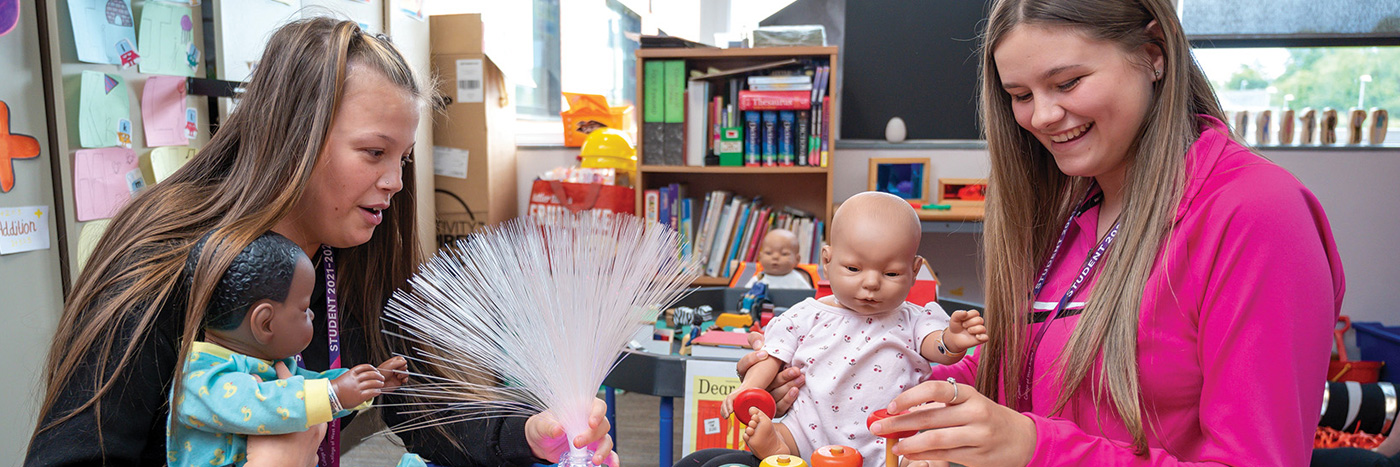By choosing UcWA, you'll be choosing to study with and experienced, knowledgeable and caring team with connections to local primary schools, early years and family services. Please note that this course does not award qualified teacher status (QTS).
Course aims
- To develop a thorough and rigorous academic understanding of the rich and holistic perspectives of the interdisciplinary framework comprising Early Childhood and Education Studies as important and dynamic areas of study
- To develop systematic knowledge and critical understanding of the interdisciplinary and cross subject domains of Early Childhood and Education Studies as an integral part of the course of study, of research, pedagogy and appropriate knowledge for practice.
- To reflect and apply critical judgement in relation to issues of social justice, inclusion, diversity and equality in primary education.
- To strongly encourage autonomous development of and active engagement with the generic and transferable skills related to Early Childhood and Education Studies in employment.
- To promote critical reflection of primary education as a research and evidence based discipline informed by ethical professional enquiry.
What will I study on this course?
This course is one year, full-time
| Module name |
Credits |
| Undergraduate Major Project |
30 |
| Perspectives on the Child 3 |
30 |
| Early Childhood Leadership and Management |
15 |
| Leading Change in Early Childhood Contexts |
15 |
| Key Paradigms 3: International and Global Perspectives in Education |
15 |
| Key Skills for Effective Primary Teaching |
15 |
What's included in each module?
In Perspectives of the Child 3, you'll develop your knowledge and understanding of inclusion, special educational needs and developmental differences to help ensure that each child is supported with their education. You'll become familiar with a range of interventions (e.g. SEND Code of Practice) to inform and develop approaches to address barriers and personalise provision.
In Early Childhood Management and Leadership, you'll build on the principle that good quality education requires creative and effective leaders who are able to manage resources and foster effective team development. This module expects you to examine the context in which education and care are provided to review issues of how we can work better to meet the needs of young children.
For Key Paradigms 3, you'll focus on deconstructing the education system to understand the complexities of how it functions and how its parts interrelate within society. This module invites you to explore policy, practice, and curriculum in both the UK and globally. By comparing international education systems, you'll develop the skills to systematically analyse educational issues, applying new principles and knowledge across different systems. You'll critically evaluate and justify inclusive teaching practices and address current challenges such as assessment and behaviour management.
In Leading Change in Early Childhood Contexts , well explore strategies for managing complex change with a focus on achieving desired outcomes. You'll examine how education and care are delivered, assessing how we can better meet the needs of young children while leading change in early childhood settings. You'll delve into partnership and interdisciplinary collaboration, discussing the challenges they bring and reflect on your own experiences.
In Key Skills for Effective Primary Teaching, you'll dive into what makes a school truly effective. Starting with Ofsted's standards, you'll explore the elements behind outstanding primary education: leadership, governance, teaching, learning, and ensuring children's behaviour and safety. You'll study leadership and management models to support your evaluation of a case study school and use change management theory to identify areas for improvement.




